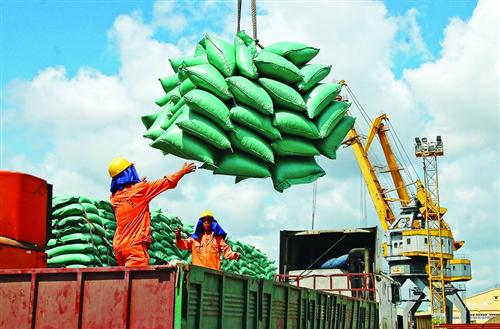Vietnam’s debt-to-GDP ratio seen below 57% by 2021: HSBC
Vietnam’s debt-to-GDP ratio seen below 57% by 2021: HSBC
If the Vietnamese Government continues its fiscal consolidation, the public debt-to-gross domestic product (GDP) ratio could be further reduced, possibly reaching below 57% by 2021, said an HSBC report.

“Elevated public debt has fallen consistently over the years,” said the “Vietnam at a glance: The Good, the Bad and the Needed" report which the Hongkong and Shanghai Bank Corporation (HSBC) released last week.
Thanks to receding government guarantees, continued fiscal consolidation and rapid economic growth, the public debt-to-GDP ratio declined from its peak of 63.7% of GDP in 2016 to 58.4% in 2018, falling further below its self-imposed debt ceiling of 65%.
Meanwhile, external public debt risk is arguably lower than what the headline figure suggests, as a large share is in the form of official development assistance with favorable loan conditions, such as low interest rates and long repayment periods.
HSBC also warned that significant challenges for the economy remain, with the most notable one being inflation. Despite headline inflation moderating to 2.8% year-on-year in 2019 from 3.5% in 2018, inflation momentum jumped sharply in November and December last year.
Inflation in December spiked to 5.2% from a year earlier, breaching the 4% inflation ceiling of the State Bank of Vietnam (SBV) for the first time in 2019. Sequentially, headline inflation rose 1.4% month-on-month, due to surging pork prices as a result of African swine fever.
HSBC cited local media as indicating that as of December 24, pork prices rose 86% to US$4 per kilogram from January 2019. Despite the authorities’ efforts to increase pork imports, surging pork prices are likely to continue to bring upward pressures on inflation in the coming months.
The bank ascribed the surge to a confluence of factors, including higher pork demand in the run up to the Lunar New Year holiday, or Tet, and likely competition with mainland China on pork imports as the latter has recently lowered pork import tariffs.
An increase in the minimum wage from early this month will also likely transmit some upward pressures to inflation, according to the bank.
“Given the upside surprise in December inflation, we are revising up our inflation forecast for 2020 to 3.8% year-on-year (previous: 3.5%), much closer to the SBV’s “below 4%” target,” said the bank.
Due to rising inflation momentum, HSBC forecast inflation to remain above 4% in the first quarter of the year, before dropping below 4% in the third quarter.
The bank stressed elevated inflation could also affect the Government’s efforts to continue with its healthcare reforms, which would entail further cost increases for the public, and thus stall the progress towards further budget consolidation.
Moreover, despite widely regarded as being the main beneficiary of the U.S.-China trade tensions, persisting external headwinds remain the biggest risk to Vietnam’s growth.
“As an economy for which exports exceed 100% of its GDP (though with significant import content) and that is highly exposed to demand of its top three export destinations, the U.S., mainland China and the EU, a possible deceleration in their 2020 growth would weigh on Vietnam’s growth,” noted HSBC.
Recent high frequency data have shown some signs of moderation in Vietnam’s factory activity. Growth of manufacturing industrial production slowed sharply, decelerating from 9% year-on-year on average in the first ten months to 2.5% in the last two months of 2019.
Meanwhile, the country’s Manufacturing Purchasing Managers’ Index in December also moderated slightly to 50.8 from 51 in November. Despite new orders extending their fast expansion, both overall output and new export orders fell below 50, signaling a likely moderation in external demand.
More reforms needed
Over the years, Vietnam has pushed for many reforms that have helped sustain high growth. In 2020, according to HSBC, continued reforms would be needed to buttress growth and tackle economic challenges.
As Vietnam’s fiscal space has been limited, but the need to upgrade and build new infrastructure is urgently required, HSBC says public-private partnerships (PPP) would provide an ‘ideal’ source to fund large infrastructure projects.
“The revised PPP Law, looking to strengthen the legal framework and laying the ground for addressing lingering issues concerning investors, is expected to pass in 2020,” said the bank.
Meanwhile, reforms are also needed in the banking sector. From January 1 this year, all local banks will have to adopt Basel II standards, requiring a minimum capital adequacy ratio (CAR) of 8%.
CARs on average have declined steadily since 2013, particularly among the State-owned banks. However, the ratio stabilized at 9.8% year-on-year as of September 2019, likely meeting the Basel II standards in 2020.
Only 16 domestic and two foreign banks have so far met the requirements. Small banks are under pressure to increase their capital to meet the new standard.
Overall, the bank believes that Vietnam’s 2020 economic outlook remains positive and expects the economy to grow 6.6% year-on-year.




















